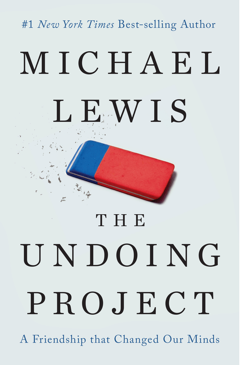Behavioral Finance and the AIM Program
 According to traditional finance theory, investors and
consumers are, for the most part, rational "wealth maximizers." We, however,
have observed many instances where emotions and investor psychology adversely influence decision-making,
causing investors to behave in erratic and irrational ways.
According to traditional finance theory, investors and
consumers are, for the most part, rational "wealth maximizers." We, however,
have observed many instances where emotions and investor psychology adversely influence decision-making,
causing investors to behave in erratic and irrational ways.Behavioral finance is a relatively new field (it was suggested that the AIM students read Michael Lewis’ The Undoing Project) over the winter break. His new book seeks to combine behavioral and cognitive psychological theory with conventional economics and finance to provide explanations for why investors make irrational decisions. This is quite a departure from recent Lewis books.
In the AIM program we are beginning to add more behavioral finance – especially as it applies to the decision-making of individual investors, analysts and portfolio managers. Academic research is showing that the manner in which investors think and feel affects the way they behave when making investment decisions.
These influences can be referred to as 'behavioral biases' and
it is through an understanding of how investors and markets behave, that
investors can adapt their own behavior in order to improve economic outcomes and
enhance the overall risk-return performance of their investment portfolios.
For students going into the industry as financial advisors, analysts
and institutional consultants, the challenge becomes explaining ‘irrational
behavior’ in a meaningful way to downstream investors and colleagues.
Dr. David Krause, AIM director said, "Providing our students with fundamental tools and an understanding of behavioral finance can help them overcome the possibility of making poor financial decisions. For institutional managers and investors, understanding the exposure of their portfolios to the various types of behavioral risk scenarios in today’s environment becomes vital. The CFA Institute is also updating their behavioral finance curriculum, so it makes sense for the AIM program to stay ahead of the curve."
Dr. David Krause, AIM director said, "Providing our students with fundamental tools and an understanding of behavioral finance can help them overcome the possibility of making poor financial decisions. For institutional managers and investors, understanding the exposure of their portfolios to the various types of behavioral risk scenarios in today’s environment becomes vital. The CFA Institute is also updating their behavioral finance curriculum, so it makes sense for the AIM program to stay ahead of the curve."








